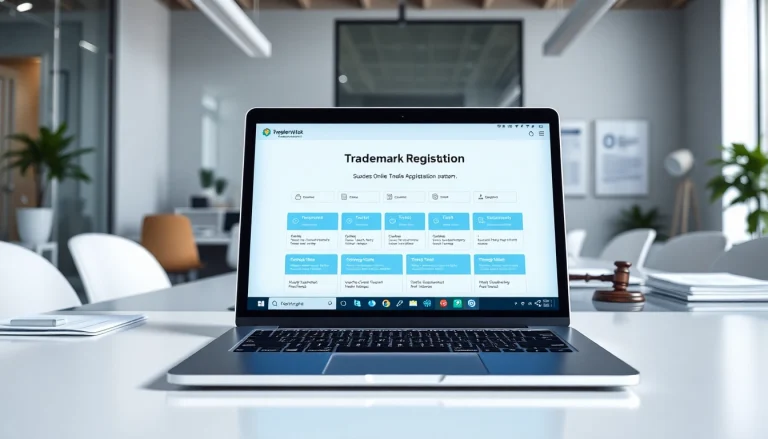Understanding the Need for Car Towing Services in Tampa
In the bustling urban environment of Tampa, car troubles can arise unexpectedly, leaving drivers stranded and stressed. Understanding when to seek car towing services can alleviate anxiety and help you return to your daily routine quickly. The availability of Car towing Tampa services is essential for residents and visitors alike, providing peace of mind in times of need. Whether you face mechanical failure, an accident, or other vehicle issues, this guide will explain the various reasons you might require towing services and how local dynamics affect these needs.
Common Reasons You Might Need a Tow
There are numerous situations that can necessitate car towing. While it’s sometimes straightforward, like a car breakdown, other circumstances can be less obvious. Here are some common scenarios where you might find yourself in need of a towing service:
- Mechanical Failures: Over time, vehicles may suffer from wear and tear that leads to mechanical failures. Common issues include engine trouble, transmission failure, or battery problems. If the vehicle cannot be driven safely, a tow is essential.
- Accidents: Car crashes can render vehicles undriveable. In the event of an accident—whether minor or severe—towing is often required to remove the vehicle from the road to ensure safety and comply with local laws.
- Flat Tires: While many drivers may attempt to change a flat tire themselves, not everyone has the tools or know-how. In such cases, calling a towing service can be a safer and more efficient option.
- Out of Fuel: Getting stranded due to running out of gas is more common than one might think. Towing services can assist by bringing fuel or transporting the vehicle to the nearest gas station.
- Flooding or Other Natural Disasters: Tampa’s weather can be unpredictable. Vehicles can get stuck in flooding or sustain water damage, meaning they require towing for repairs.
How Local Geography Influences Towing Needs
Tampa’s geography plays a significant role in shaping the towing needs of its residents. Its proximity to coastlines, lakes, and numerous bridges can lead to unique challenges:
- Coastal Weather Effects: The humid subtropical climate in Tampa can contribute to vehicle issues due to rust and corrosion. Regular maintenance is essential, or drivers may find themselves needing a tow more often.
- Heavy Traffic Areas: Roads like the Courtney Campbell Causeway and Interstate 275 are prone to heavy congestion. Accidents in these areas not only require towing services but often immediate response to ensure traffic flow.
- Transportation Hubs: With multiple airports and transport stations, vehicles often face a high volume of visitors. Tourists may be unfamiliar with their vehicles, leading to a greater likelihood of needing assistance.
Understanding Towing Regulations in Tampa
In Tampa, as in many cities, towing regulations exist to protect consumers and ensure the integrity of parking spaces. Understanding these regulations can help driver navigate their options:
- Private Property Towing: It’s important to know that vehicles can be towed from private properties without notice if they’re parked illegally. Owners must ensure proper signage is displayed to give notice.
- Emergency Services: Tow truck drivers are often required to follow specific protocols when responding to emergencies, including identifying themselves and documenting the situation according to city regulations.
- Metro Area Regulations: Various districts within the Tampa metro area may have different laws regarding towing, licensing requirements, and fees. Familiarity with these can aid individuals in choosing reputable towing services.
Choosing the Right Towing Company in Tampa
When searching for a reliable towing service, understanding the various factors can make a significant difference. Here’s a comprehensive look at what to consider:
Factors to Consider: Experience and Reputation
Experience and reputation are crucial when selecting a towing company. Established companies tend to have a long-standing history in the community, signifying reliability and customer trust. Here are some tips for evaluating a company’s standing:
- Years in Business: Companies with a longer history are often more credible. They are familiar with local regulations and customer needs.
- Professional Associations: Memberships in industry groups can indicate a commitment to best practices and ethical standards.
- Local Knowledge: An understanding of Tampa’s unique towing needs can give established companies an edge over newcomers.
Price vs. Quality: What Should You Expect?
When considering towing services, price is an essential factor, but it shouldn’t be the only one. It is crucial to assess the balance between cost and the quality of service:
- Transparent Pricing: Look for companies that provide clear estimates before services, avoiding hidden fees.
- Cost Vs. Service Quality: Sometimes, lower costs can lead to subpar service. Evaluating a company’s equipment and personnel can help gauge their service quality.
- Package Offers: Some companies provide package deals that include roadside assistance and towing, potentially offering more value for your money.
Customer Reviews: Which Companies Stand Out?
Utilizing customer reviews is invaluable for assessing potential towing companies. Here’s how to navigate this process effectively:
- Check Multiple Sources: Reviews on platforms such as Google, Yelp, and social media can provide a balanced view.
- Look for Patterns: Analyze reviews for common themes, whether positive or negative, helping you identify consistent service quality or issues.
- Engagement: Companies that respond to reviews (both positive and negative) show a commitment to customer satisfaction.
The Towing Process: What to Expect
Understanding the towing process can alleviate stress when you find yourself in a situation where assistance is needed. Below are the typical steps involved:
Steps Taken Once You Call for Assistance
When you contact a towing service, the process typically involves several stages:
- Initial Call: You’ll describe your situation, including your location and the issue with your vehicle.
- Dispatch Response: The company dispatches a tow truck, often giving an estimated arrival time. Some companies offer GPS tracking on their trucks.
- Arrival: The towing driver assesses the situation, confirming the best tow method for your vehicle.
Understanding Rates and Fees
Towing rates can vary depending on several factors, including distance, type of vehicle, and time of day:
- Base Rate: Most companies charge a base fee for the initial tow, which can vary by company.
- Distance Fees: Costs typically increase based on how far your vehicle must be towed.
- After-Hours Fees: Some companies charge more for services rendered during late hours or on holidays.
Emergency Towing vs. Scheduled Towing: Key Differences
Understanding the difference between emergency towing and scheduled towing is essential:
- Emergency Towing: This occurs when immediate assistance is needed, such as after an accident or total breakdown. Prices are generally higher due to the urgency.
- Scheduled Towing: This option allows you to plan a tow, often for vehicle transport or repairs. It is typically more cost-effective and flexible.
Additional Services Offered by Towing Companies
Towing companies often provide a range of additional services that can enhance their value beyond standard towing. Here are some services to consider:
Roadside Assistance: Beyond Just Towing
Many towing companies offer comprehensive roadside assistance packages, which can include:
- Battery Jump Starts: A quick electrical boost can get your vehicle back on the road without needing a tow.
- Lockout Services: If you accidentally lock your keys inside your vehicle, many towing companies have the tools to unlock your door without causing damage.
- Tire Changes: They can replace flat tires with your spare tire, providing peace of mind if you’re stranded.
- Fuel Delivery: Out of gas? Many towing services will deliver a small amount of fuel to get you to the nearest station.
Light Duty vs. Heavy Duty Towing: Which Do You Need?
Towing services can generally be classified into two categories: light-duty and heavy-duty towing. Understanding the difference can save you time and frustration:
- Light Duty Towing: This service is for standard vehicles such as sedans, SUVs, and light trucks. It often includes basic towing and roadside assistance.
- Heavy Duty Towing: This is necessary for larger vehicles like RVs, buses, or commercial trucks. Heavy-duty towing requires specialized equipment and expertise.
Vehicle Recovery Methods Explained
Different methods are used for vehicle recovery, depending on the situation and the vehicle’s condition:
- Flatbed Towing: This method involves loading the vehicle onto a flatbed truck, providing the safest option for vehicles with extensive damage.
- Wheel-Lift Towing: A wheel-lift tow truck lifts the front or rear of the vehicle while the wheels not being lifted remain on the ground.
- Hook and Chain Towing: While outdated, this method still exists. It uses hooks and chains to secure the vehicle. Care must be taken to avoid damage.
Tips for Safe and Efficient Towing Experience
To ensure an optimal towing experience, follow these practical tips:
Preparing Your Vehicle for Tow
When you know a tow truck is on the way, preparing your vehicle can ease the process:
- Locate Your Keys: Ensure you have your keys ready for the tow truck driver, particularly if they need to access the vehicle.
- Disable the Alarm: If your vehicle is outfitted with an alarm, disable it to avoid issues during the tow.
- Inform the Tow Truck Driver: Give detailed information about the vehicle’s condition to assist the driver in making appropriate arrangements.
What to Do While Waiting for Your Tow Truck
Waiting for your tow truck can be stressful. Here are some suggestions to make the wait easier:
- Stay in a Safe Location: If possible, remain in your vehicle with the hazard lights on, or stand at a safe distance on a sidewalk.
- Inform Others: Let family or friends know your situation, especially if you’re far from home or in an unfamiliar area.
- Keep Your Phone Handy: Use this time to access your contacts or research your chosen towing service’s reviews.
Staying Safe on the Road: Towing Legislation You Should Know
Legislations surrounding towing can influence your experience significantly. Familiarizing yourself with key regulations can protect your rights and ensure a smoother interaction with towing services:
- Recovery Fees: Many jurisdictions dictate a maximum allowable fee for towing. Be aware of these figures in case of disputes.
- Vehicle Release Fees: Review the necessary documents and fees for vehicle recovery after a tow, ensuring clarity on any additional costs.
- Safe Towing Practices: Many states have established rules for safe towing practices that companies must follow, ensuring that cars are towed safely.








